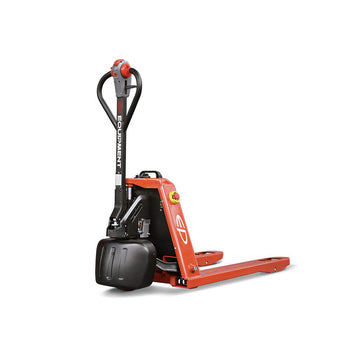The Relentless Challenge of 24/7 Operations
In the demanding world of 24/7 warehouse and logistics operations, every minute of downtime directly impacts the bottom line. The relentless pace of material handling means that equipment availability is paramount. For years, traditional lead-acid battery forklifts have been the workhorse of these environments. However, their inherent limitations, particularly concerning power management, create significant bottlenecks that erode productivity and inflate operational costs.
The Pain Points of Traditional Lead-Acid Batteries
Operating a multi-shift forklift fleet with lead-acid batteries comes with a litany of challenges:
-
Lengthy Charging Times: Lead-acid batteries demand a cumbersome 8-12 hours for a full charge, followed by another 8 hours of cooling. This effectively renders a battery out of commission for 16-20 hours, necessitating multiple batteries per forklift.
-
Battery Swapping: A Labor-Intensive Endeavor: To maintain continuous operation, companies resort to labor-intensive, time-consuming, and potentially hazardous battery swapping. This involves moving heavy batteries (often weighing over a ton) with specialised equipment, demanding trained personnel and dedicated charging rooms with ventilation and safety infrastructure. This process itself is a source of significant downtime and safety risks.
-
Maintenance Requirements: Lead-acid batteries require regular watering, cleaning, and equalisation charges to prevent sulfation and acid stratification, which degrade performance and shorten lifespan. This adds to labor costs and pulls valuable staff away from core tasks.
-
Performance Degradation: Unlike lithium-ion, lead-acid battery performance (voltage, lift speed) noticeably declines as the charge depletes. This "power fade" reduces productivity and efficiency towards the end of a shift, impacting throughput and operator morale.
-
Shorter Lifespan & Higher Replacements: With a typical cycle life of 500-1,500 charges (3-5 years), lead-acid batteries require frequent replacements, contributing to higher capital expenditure over the fleet's lifetime.
-
Environmental Concerns: Lead-acid batteries contain hazardous materials and can emit corrosive fumes (hydrogen gas) during charging, requiring specialized ventilation and posing environmental and safety risks.

The Lithium-Ion Advantage: Combating Downtime Head-On
Lithium-ion forklifts offer a revolutionary solution by directly addressing and virtually eliminating these downtime-inducing pain points:
-
Rapid Charging & Opportunity Charging: Lithium-ion batteries can achieve a full charge in as little as 1-3 hours, a dramatic reduction from lead-acid. Crucially, they excel at "opportunity charging." This means operators can top up the battery during short breaks (15-30 minutes), lunch, or between tasks without damaging the battery or shortening its lifespan. This flexibility ensures forklifts are always ready, virtually eliminating full discharge/recharge cycles and the need for cooling periods.
-
Elimination of Battery Swaps: Thanks to rapid and opportunity charging, a single lithium-ion battery can often power a forklift through multiple shifts, or even 24/7 operations. This eradicates the labor, time, and safety risks associated with battery swaps, freeing up staff and eliminating the need for dedicated, costly battery changing infrastructure and valuable warehouse space.
-
Zero Maintenance: Lithium-ion batteries are sealed, virtually maintenance-free units. They require no watering, cleaning, or equalization charges, significantly reducing labor costs and operational pauses. This simplifies fleet management and allows maintenance staff to focus on other critical equipment.
-
Consistent Power Output: One of the most significant operational advantages is the flat discharge curve of lithium-ion batteries. This means consistent power and performance throughout the entire shift, regardless of the state of charge. Forklifts maintain full lift speeds and hydraulic performance from start to finish, leading to more predictable and efficient operations.
-
Extended Lifespan: Lithium-ion batteries boast a significantly longer cycle life, typically 2,000 to 5,000 cycles (7-12 years), compared to lead-acid. This translates to far fewer battery replacements over the equipment's lifespan, reducing capital expenditure and waste.
-
Enhanced Energy Efficiency: With energy efficiency ratings often reaching 95-99% (compared to 70-80% for lead-acid), lithium-ion batteries consume 30-40% less electricity for the same output. This directly reduces energy bills, especially for high-throughput 24/7 operations.
-
Improved Safety: Lithium-ion batteries do not emit hazardous fumes (hydrogen gas) or risk acid spills. They also feature an integrated Battery Management System (BMS) that constantly monitors voltage, current, and temperature, protecting against issues like overcharging, deep discharge, and overheating, further enhancing workplace safety.
-
Space Optimisation: The elimination of dedicated battery charging rooms frees up valuable warehouse real estate that can be repurposed for additional storage, production, or other revenue-generating activities.
Tangible Productivity Gains in 24/7 Environments
The benefits of lithium-ion forklifts translate directly into measurable productivity improvements:
-
Increased Uptime: By eliminating lengthy charging and cooling times, and the need for battery swaps, forklifts are operational for significantly more hours per day/week. For instance, some facilities report reducing downtime by up to 40%.
-
Higher Throughput: More active forklifts operating at consistent power levels mean more goods can be moved, picked, and stacked per shift. A Coca-Cola factory, for example, reported a 50% improvement in overall production efficiency after switching.
-
Optimised Labor: Staff previously engaged in battery swapping, watering, and maintenance can be re-deployed to value-added tasks within the warehouse, boosting overall labor efficiency. One beverage warehouse eliminated 9,000 annual battery-handling events.
-
Smoother Operations: Reduced interruptions, predictable performance, and the ability to opportunity charge during natural breaks lead to a more continuous and efficient workflow.

Total Cost of Ownership (TCO) Perspective
While lithium-ion forklifts typically have a higher upfront cost than their lead-acid counterparts, a comprehensive Total Cost of Ownership (TCO) analysis reveals a compelling return on investment (ROI), especially for 24/7 operations. The initial investment is quickly offset by substantial long-term savings in:
-
Electricity costs: Due to superior energy efficiency and reduced peak demand charges.
-
Labor costs: Eliminating battery swaps and significantly reducing maintenance.
-
Battery replacement costs: The extended lifespan means fewer expensive battery purchases over the equipment's lifetime.
-
Infrastructure costs: No need for dedicated, ventilated battery charging rooms.
-
Reduced downtime: This is often the biggest hidden cost in 24/7 operations. One large distribution center saved over $100,000 annually in maintenance and energy costs by switching.
ROI for lithium-ion forklifts is often achieved within 24-36 months, with some case studies showing payback periods as short as 21 months. The sustained performance, increased uptime, and lower operational expenses make them a significantly more cost-effective choice over the lifespan of the equipment.
Conclusion
For warehouse managers, logistics directors, and business owners running high-throughput 24/7 operations, lithium-ion forklifts represent more than just an equipment upgrade; they are a strategic imperative. By virtually eliminating battery-related downtime, offering unparalleled energy efficiency, and requiring minimal maintenance, these revolutionary machines boost productivity, enhance safety, optimize space, and deliver a powerful return on investment. Embracing lithium-ion technology is not just about staying competitive; it's about leading the charge towards a more efficient, productive, and sustainable future for material handling.





